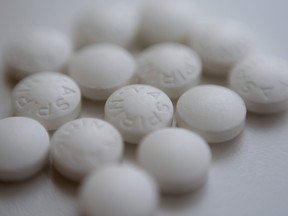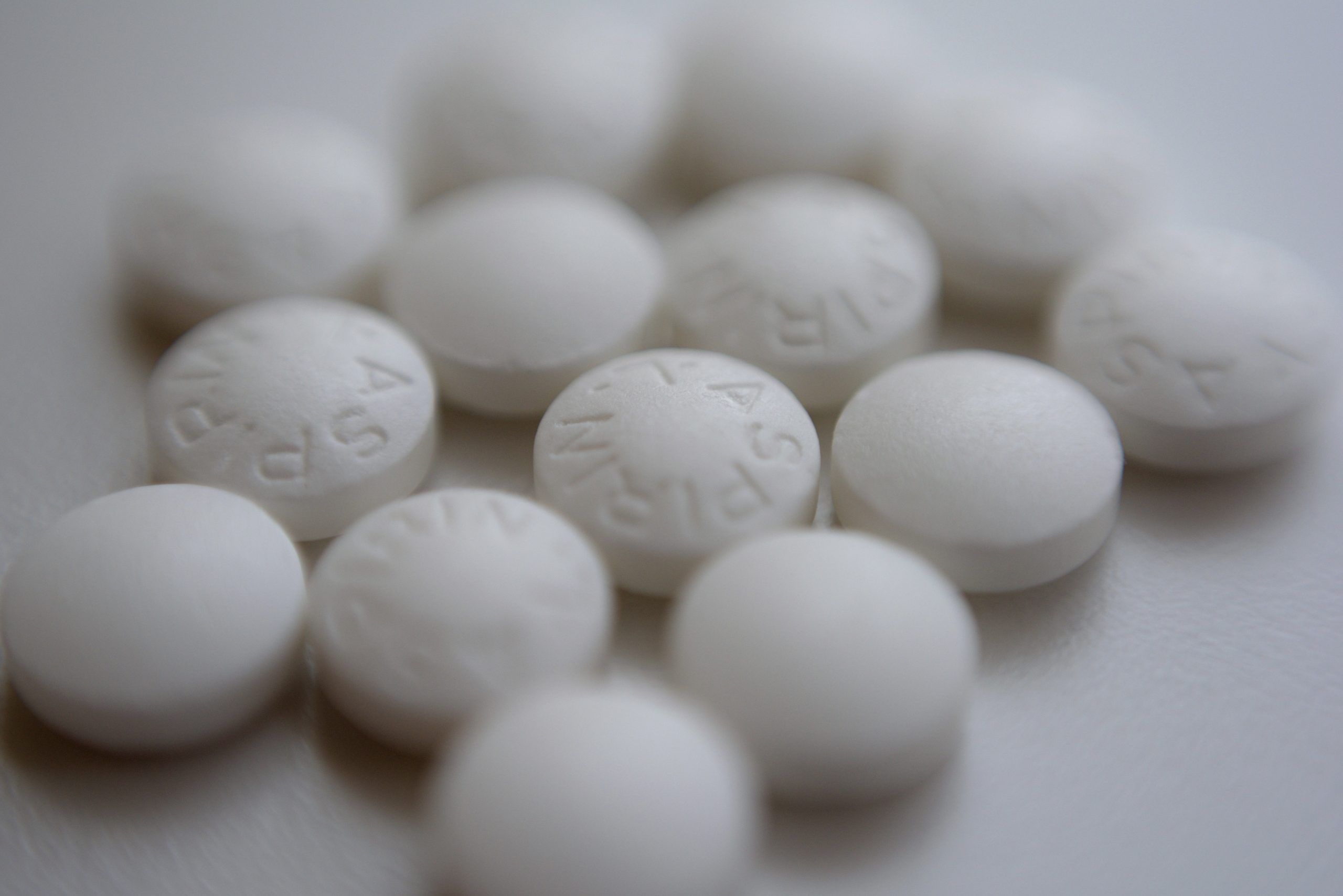
Article content
Aspirin can help prevent a second heart attack or stroke, but fewer than half of those who could benefit use the over-the-counter medication, a new study shows.
Advertisement 2
Article content
Researchers analyzed health surveys from 51 countries from 2013 to 2020 and found that aspirin use following a cardiovascular event — known as “secondary” prevention — ranged from about 17 percent in low-income countries to about 65% in high-income countries. The study was published in JAMA.
Article content
The researchers concluded that, overall, far too few people around the world — only about 40% — are taking aspirin for secondary prevention of cardiovascular disease, said Sang Gune Yoo, a cardiovascular disease fellow at Washington University School of Medicine in St. Louis, and lead author of the study.
Low aspirin use among this population “should send alarm bells,” Yoo said. “There is a lot more work to be done to reduce the global burden of cardiovascular disease, which is the leading cause of mortality in the world.”
Article content
Advertisement 3
Article content
Risks and benefits of aspirin
An estimated 17.9 million people globally die of cardiovascular diseases each year, according to the World Health Organization.
Advice about whether to take aspirin for heart disease has been confusing. For years, doctors recommended that middle-aged and older adults take a low-dose daily aspirin to prevent a first heart attack. In 2021, though, the U.S. Preventive Services Task Force reversed the advice, saying doctors should no longer routinely prescribe aspirin for “primary” prevention because the risk of side effects outweighs the benefits.
In patients who are not at higher risk — those who do not have diabetes or hypertension, and have never had a cardiovascular event — “the risk of taking aspirin, albeit small, may outweigh the benefits,” said Neil Schwartz, a clinical professor of neurology at Stanford University, who was not involved in the study.
Advertisement 4
Article content
The advice, however, did not apply to people who were already taking daily aspirin in hopes of preventing a second heart attack or stroke. Aspirin, which is an antiplatelet medication, helps prevent blood clots from forming in the arteries and may reduce the risk of a second cardiovascular event.
About one in five people who have had a heart attack are estimated to have a second one within five years, and about 1 in 4 people who have had a stroke are estimated to experience another, research shows.
There are some cardiovascular disease patients who are not good candidates for aspirin therapy, such as those who are at increased risk of bleeding, particularly bleeding within the brain, experts say. Speak with your doctor before starting daily aspirin therapy, they advise.
Advertisement 5
Article content
RECOMMENDED VIDEO
Aspirin is underused
Questions about the benefits and risks of daily aspirin use for prevention of a first heart attack or stroke, especially for people not at high risk, can cause concern among those who are prescribed aspirin to reduce the risk of a reoccurrence of a cardiac event.
“Then the patients who have had a cardiac event – who have had a heart attack or who have had a stroke – they are the ones who suddenly stop taking their aspirin,” said Martha Gulati, a cardiologist at Cedars-Sinai Heart Institute and president of the American Society for Preventive Cardiology.
At-risk patients may stop taking aspirin because they want to cut down on the number of pills they have to take daily or, even though aspirin is relatively inexpensive, those who are struggling financially may stop taking it to help cut costs, Gulati said.
“And sometimes, they feel well and don’t think they need to take it,” she said.
Gulati sees these patterns with her own patients, but those who have been told by their doctors to take aspirin “need to continue taking their aspirin,” she said.



Comments
Postmedia is committed to maintaining a lively but civil forum for discussion and encourage all readers to share their views on our articles. Comments may take up to an hour for moderation before appearing on the site. We ask you to keep your comments relevant and respectful. We have enabled email notifications—you will now receive an email if you receive a reply to your comment, there is an update to a comment thread you follow or if a user you follow comments. Visit our Community Guidelines for more information and details on how to adjust your email settings.
Join the Conversation